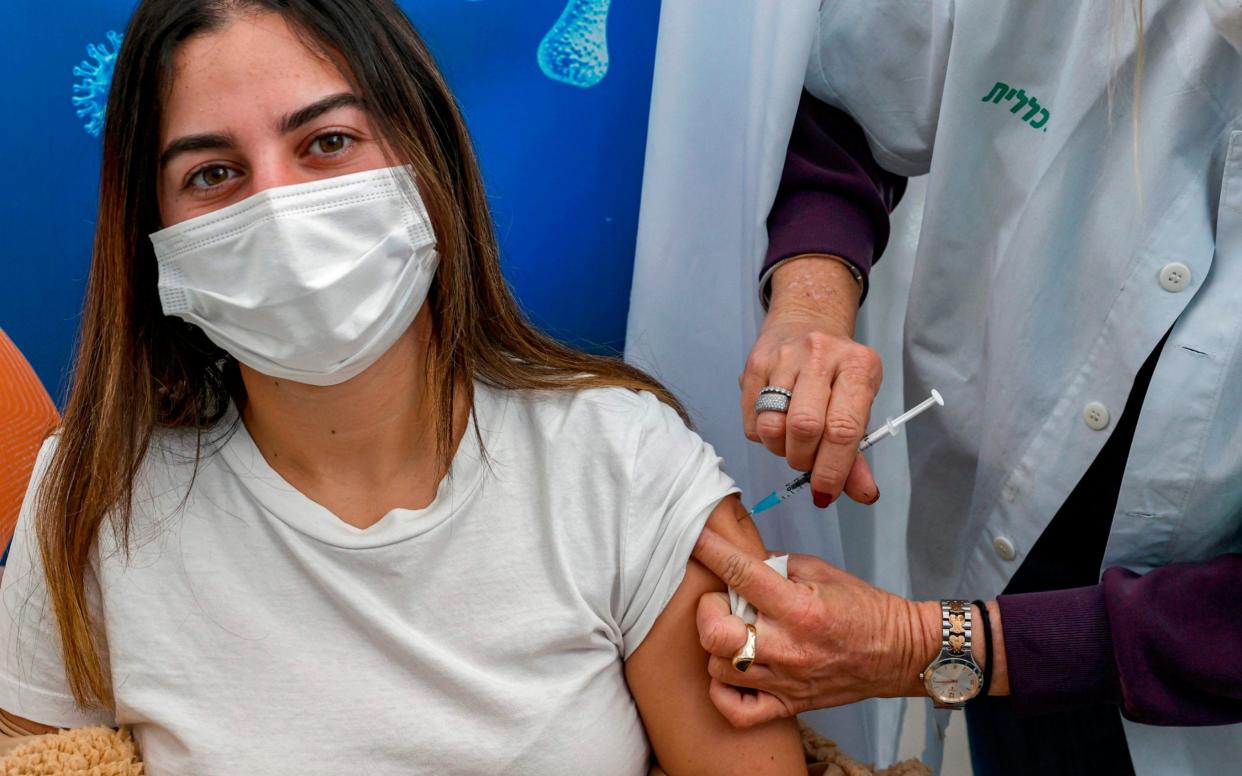Less than one per cent catch Covid a week after second vaccine dose, Israeli study finds

Israel announced on Monday night that fewer than one per cent of a group of fully vaccinated patients have developed Covid, in the strongest indication yet that the jabs are highly effective.
A study by Maccabi, an Israeli healthcare provider, found that only 20 of around 128,000 people had caught the disease when tested around a week after receiving their second dose.
"New data from Maccabi Healthcare Services, one of the largest healthcare providers in Israel, shows that only 20 people out of ~128,600 have been infected with the COVID-19 virus, more than a week after receiving the second dose of the vaccine," the healthcare provider said in a statement on Monday night.
Around half of the 20 patients who did contract Covid had chronic symptoms, while the rest reported mild symptoms such as a cough, headaches and fatigue.
Anat Ekka Zohar, a senior doctor at Maccabi, said: "This is very encouraging data. We will monitor these patients closely in order to examine if they continue to suffer from mild symptoms only and do not develop complications as a result of the virus".
It came as Israeli health officials said they were confident that their Pfizer and Moderna vaccines were effective against all news strains of the virus, including the UK variant.
"The vaccine works against the British mutation but the virus infection rate is much faster than the vaccine rate," said Dr Sharon Alroy-Preis, the Israeli government's public health chief.
Israeli officials have warned that as much as 70 per cent of new coronavirus cases in the country may have been caused by the UK strain, and that children are more likely to catch it than first expected.
"Forty per cent of illness is in children, a higher percentage than their part in the population," Dr Alroy-Preis told Israeli reporters on Monday.
"We see a rise in infections in ages six to nine, which is exactly the age group that is supposed to go back to school [at the end of lockdown].”
More than a quarter of Israel’s population has been vaccinated against coronavirus, with over-40s given priority.
Over the weekend, Israel expanded the scheme to include 16 to 18-year-olds so they can sit important high school exams on schedule.
Meanwhile Nachman Ash, the Israeli coronavirus tsar, said he believed the vaccines would be effective against all new strains but was particularly confident about the UK variant.
"Most of the mutations we believe the vaccines will stop, we know this with a very high probability regarding the British variant,” he told Israeli radio station 103 FM.
Meanwhile, some members of Israel’s ultra-orthodox Jewish community have taken to the streets to protest against the country’s third nationwide lockdown.
A bus driver was dragged from his seat and the vehicle set ablaze during a riot in the Israeli city of Bnei Brak on Monday.
Israeli officials say that 9.3 per cent of the coronavirus tests results recorded on Sunday came back as positive, the second-highest level this month.
More than a thousand people have died from coronavirus in Israel this month, bringing the total death toll to 4,419.

